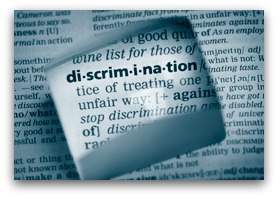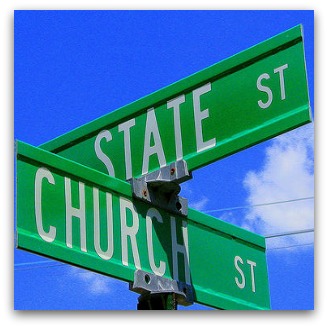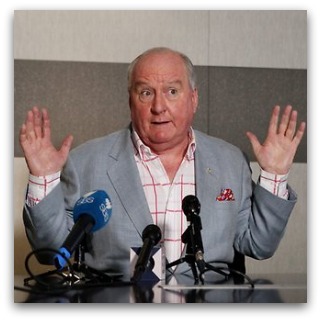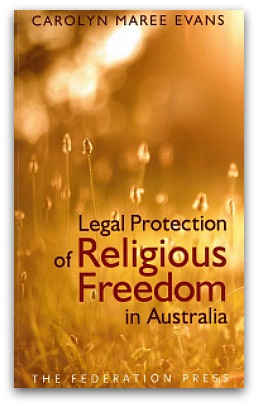Keywords: Freedom Of Religion
There are more than 200 results, only the first 200 are displayed here.
-

RELIGION
- Frank Brennan
- 18 March 2013
3 Comments
Change is upon the Church. Just recall the scene when the new pope emerged on the Vatican balcony. He appeared with none of the papal trimmings of office, and did not once did he refer to the papacy. Could something of this new papal style help Catholics engage more creatively with their fellow citizens? Text from Frank Brennan's lecture 'How Can the Catholic Church Contribute to a Better Culture for Life?'
READ MORE
-

RELIGION
- James McEvoy
- 11 March 2013
6 Comments
Traditionalists turn to the leadership for tighter control over doctrine, liturgy and practice. Progressives look to the leadership for removal of constraints in the same areas. The Church needs a pope with an engaged, open stance, sensitive to the struggles of contemporary seekers and not pushing pat answers.
READ MORE 
-

ARTS AND CULTURE
- Barry Gittins and Jen Vuk
- 08 March 2013
7 Comments
Adams once told me about his room of gods. It's chockablock with deities from myriad cultures and creeds. While Adams is revered as Godfather to Australia's atheists, at heart he remains a young boy huddled under the covers at night; buried under the considerable challenges due his story of origin.
READ MORE 
-

AUSTRALIA
- Frank Brennan
- 19 February 2013
34 Comments
There has been some very confused debate about the Government's proposed consolidation of anti-discrimination laws. David Marr claimed leaders of 'conservative faiths' were free to 'kick poofters, lesbians, single mothers, people in de facto relationships'. He needs to take a cold shower while we clarify these issues.
READ MORE 
-

RELIGION
- Chris McGillion
- 29 November 2012
43 Comments
It is inconceivable that Catholic authorities would countenance the state interfering in the sacramental life of the Church. And any attempt to do so would quickly turn into an issue of freedom of religion. If the Royal Commission were to go down that path it could quickly find it had bitten off much more than it can chew.
READ MORE 
-

RELIGION
- Frank Brennan
- 23 November 2012
1 Comment
'Might not the chief problem with Church language in the public square be that we tend to come from a position of moral superiority, approaching those dreadfully compromised politicians who will do anything to be elected? The abuse crisis reminds us that the Church is not irreproachable.' Text from Fr Frank Brennan's presentation at the Anglican Church of Australia's Public Affairs Commission Conference, November 2012.
READ MORE
-

RELIGION
- Frank Brennan
- 02 November 2012
36 Comments
What is to be done in the name of law and justice for the victims of abuse? Clearly the Church cannot be left alone to get its house in order. The State may have a role to play, but our elected politicians need assistance from lawyers committed to justice, not lawyers acting primarily to protect or condemn the Church.
READ MORE 
-

MEDIA
- Justin Glyn
- 08 October 2012
23 Comments
Free speech is fundamental to democracy because it protects public discourse and freedom of religion. But while the right to free speech must to be respected even if it causes offence, we need to question what purpose is served by Alan Jones' attack on Julia Gillard, and the French cartoons.
READ MORE 
-

RELIGION
- Frank Brennan
- 18 September 2012
'The common law leaves a gap between the mandates of the law and the conduct that we choose to engage in according to our individual moral standards. We call that gap 'freedom'. The challenge is determining the width of that gap for groups bound by religious faith which differs from the Australian majority.' Frank Brennan launches Carolyn Evans' Legal Protection of Religious Freedom in Australia. Full text
READ MORE
-

RELIGION
- Andrew Hamilton
- 13 September 2012
18 Comments
Many conflicts over religious freedom are associated with discrimination: the freedom of schools to employ only Christian staff, or of ministers to conduct marriages only between a man and a woman. Many see these pressures to limit religious freedom as part of a concerted effort by secularist forces. They don't have to be seen that way.
READ MORE 
-

RELIGION
- Frank Brennan
- 07 September 2012
18 Comments
Church groups in Australia have vigorously campaigned to protect themselves from particular equal opportunity laws. While there is agreement about a faith community's right to employ practising believers, there is plenty of room for disagreement as to how most prudently and charitably to exercise that right.
READ MORE
-

EDUCATION
- John Warhurst
- 09 July 2012
10 Comments
Labor speechwriter Graham Freudenberg observed that ‘the oldest, deepest, most poisonous debate in Australia has been about government aid to church schools’. The most dramatic episode in the history of church state relations in Australia was the Goulburn schools strike, which took place 50 years ago this month.
READ MORE 